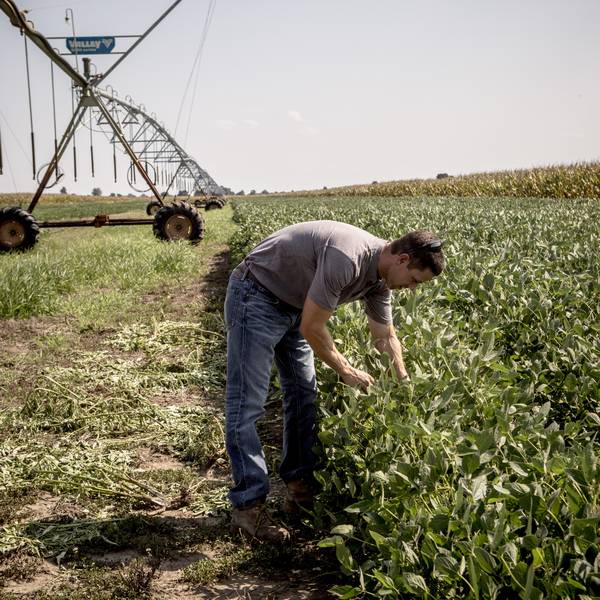Years ago, when leaded gasoline was what gas stations sold to motorists, I would be driving through the fertile valleys in California and see the crops growing right up to shoulders of the narrow blacktop roads that coursed the expansive fields. "Doesn't this lead coming out of many vehicular tailpipes get into the soil and contaminate the food that is harvested there?" I wondered.
Nobody I asked was very informative about this dangerous heavy metal, or other pollutants, coming from vehicles, nearby factories and power plants. The connection between airborne pollutants and soil pollution needs to be made more often.
Lately the Eskimo's, with the help of ecologist D. Barry Commoner, of Queens College in New York City, are finding out about the dangers of dioxins floating thousands of miles north to their habitats.
Lead in gasoline has been phased out by the EPA beginning in 1975. But the lead that was deposited in these farmlands is not degradable. It is still there. Surprisingly, the EPA has no binding minimum lead level for soil growing vegetables, fruits, corn, soy beans, wheat, barley and the like.
Knowledge about lead and other heavy metals in urban gardens may be on the way, thanks to organic farmer, Michael Keilty, who is a sustainable agriculture lecturer at the University of Connecticut. In the past decade, urban and suburban community gardens have sprung up in cities around the country. Unfortunately, the density of heavy metal contaminants has raised suspicions that this otherwise marvelous civic initiative may have a downside, albeit a remediable one.
Working with soil scientists and analytical chemists at the Connecticut Agricultural Experiment Station and the Connecticut Community Gardening Association, Mr. Keilty is advancing a proposal to test some of the 44 Connecticut cities and towns with active community gardening programs. These sites contain 2,280 individual garden plots and provide many moderate to low income residents with a source of nutritious and affordable food.
This is not a fishing expedition. Preliminary findings, in 2006, have already shown elevated levels of lead, arsenic and other heavy metals in soil samples taken from 12 out of 17 initial collection sites, compared with background levels. Three of these sites exceeded the state lead guidelines, while one of them reached the definition of a hazardous waste site.
The budget for the soil testing proposal is $285,600 and its sponsors are requesting funding from the state legislature.
Lead poisoning is especially damaging to children's developing brains and nervous systems. Leaded paint peeling off tenement walls has damaged millions of mostly poor children over the past eighty years. Some of the children who are described as having learning disabilities were really suffering from lead poisoning. Fortunately lead was also banned from paint in 1978, but peeling apartment walls still provide an enticement to little children to chew and swallow paint chips.
Federal, state and local efforts to rid these buildings of lead have lagged in both funding and enforcement. One would think that ridding this silent form of violence (lead, arsenic, cadmium, chromium, nickel and zinc) would come under "national defense," but the President is too pre-occupied with sending hundreds of billions of tax dollars to destroy Iraq and deepen that costly quagmire.
Problem-solvers, like Michael Keilty and Thomas Bott of the Connecticut Community Gardening Association, are focusing on soil health and safety of produce in America. Their findings and their recommendations for soil cleanup will benefit the community garden movement throughout our country.
First, however, the lawmakers in Hartford have to place this public health and consumer safeguarding endeavor in their proper scale of priorities. They can easily pay for it, and other necessities, just by cutting back on the tens of millions of dollars for various corporate subsidies--direct and indirect--that they have been doling out over the years.
Community gardens have many, many benefits beyond providing needed food and dollar savings. The joint project proposal, by Mr. Keilty and his colleagues, lists a "sense of community that culminates in interaction among various community groups, a source of pride in the neighborhood and the reclamation of unused, neglected parcels of landAC/a,!A|..the level of physical activity associated with gardeningAC/a,!A|.and the educational source for young people who learn where their food comes from and how it grows."
To obtain a copy of the entire proposal and a listing of community garden plots and sites in Connecticut town by town, write to Michael Keilty, Hickory Stick Books, 2 Green Hill Rd., Washington Depot, Connecticut 06794.



